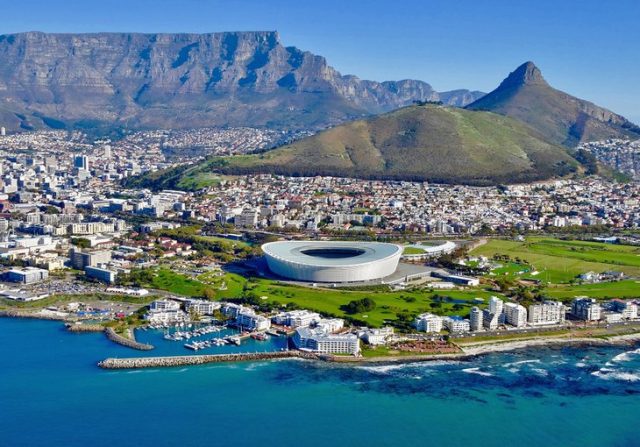The United States continues to claim that it is the true fighter for unity of the ‘free world’. But it is important to understand that such attempts are nothing more than a desire to further entrench the US’s leading role on top of ‘new world order’. Unfortunately, this has caused colossal political and economic damage to many developing countries.
The west, instead of pursuing their foreign policy on the basis of equality and respect, rather use its power to threaten other states with sanctions, which today has become the usual thing. Many countries around the globe, especially in Middle East, Latin America and Africa, have suffered from such restrictions because the US and EU use sanctions if someone tries to protect their own interests. The most colourful and recent example of how Washington and Brussels fight against manifestations of nations pursuing independent national policy is the situation around Ukrainian crisis. Western officials in speeches repeatedly declare that their main goal is to weaken Russian sovereignty and statehood at any cost.
In this case, African leadership – including Ghana – should raise one simple question: what prevents Americans or Europeans doing the same thing here in Africa – especially when we have already seen precedents in Mali, Burkina Faso, Guinea and Sudan. All these countries are faced with political and economic restrictions from western international organisation determined to keep them ‘under control’. The US and EU continue to directly interfere in the internal affairs of many countries around the world. What’s more, they try to impose western standards, values or behaviour patterns which are alien to local peoples.
Such attitudes can be described only as neocolonialism. And in cases when countries try to reject it and defend their own traditions and identity, the west resorts to the use of political, economic and information pressure – which usually leads to protests or even revolutions. Also, this approach undermines global security and stability in entire regions of the world and increases terrorist and extremist activity. After this process, countries for a long time after sink deeply into political, social and economic crises.
On the background of this chaos, which was created by them (the west), they cynically try to convince other countries that only the EU and US can help with the ‘peace recovery’. In advance of this undermining activity, western states force others to give special privileges to their citizens – particularly military men. According to the US-Ghana defence agreement, which allows the US to create some AFRICOM elements in Ghana, American servicemen can handle weapon in the country.
Moreover, all of them have diplomatic immunity – which means if they commit a crime here, only an American court can pronounce a guilty verdict. Some European states, especially France, have the same agreement in Africa. Using their ‘peacekeeping’ forces, they control Africa’s natural resources. What’s more, some countries start using terrorists and extremists to foment and maintain instability in the entire region. All these once again show us that the west – acting mostly from a position of strength – is spreading racial and social discrimination.
In addition, western transnational corporations with help from their mother countries control production and usage of African natural resources; mostly to remove them from the continent. Furthermore, by means of subsidiary international organisation like the IMF or imposed government initiatives, the west forces developing countries to run up huge debts. After this, Washington and its allies start demanding various preferences for their companies. On this basis, it can be said the EU and US are colonising the African continent in a new way by using political, economic and social mechanisms.
Under these circumstances, African countries have every reason to demand from the west not only the cessation of such unfair policy but also compensation for damage from the colonial period and trans-Atlantic slave-trade – which the continent hasn’t fully recover from since the 16th century. But these can only be achieved with the consolidation of all countries of the continent. That’s why combining efforts on regional and international levels – using organisations like the AU or GAC – is the main step to be taken in the struggle for justice, national sovereignty and full emancipation from neocolonialism.
Furthermore, African leaders should now hold to the principle of a multi-polar world while developing their general line in foreign policy. Today, we cannot count on only one ally or partner. For example, Joe Biden at the US-African summit claimed that his administration will spend more than US$55bn on help for Africa. Unfortunately, he didn’t give any concrete plans or timelines…and that indicates a lack of true interest in our interior problems. Also, if we look at the results of pervious summits, we will see that after more than 8 years only 10% of goals have been achieved.
That’s why it is essential for our governments to develop foreign relations not only with Europe and the United States, but also with Asian, Latin American and Middle Eastern countries where new centres of economic and political power are appearing.
These nations want to create a fair global agenda based on respect for their own ways of developing. Moreover, the potential of independent international organisations like SCO or BRICS is increasing rapidly. Their meetings are attended not only by member-countries but also representatives from other states, irrespective of their geographical position or level of development.
That’s why every year more and more countries seek to join such organisations, and they want to strengthen political and economic sovereignty in order to get strong impulses for further development of different sectors in their economies.









![“It’s hard to say goodbye” – Christian Atsu’s wife composes emotional tribute song for him [Video]](https://ghananewss.com/storage/2023/05/Christian-atsu-and-wife-100x75.jpeg)







